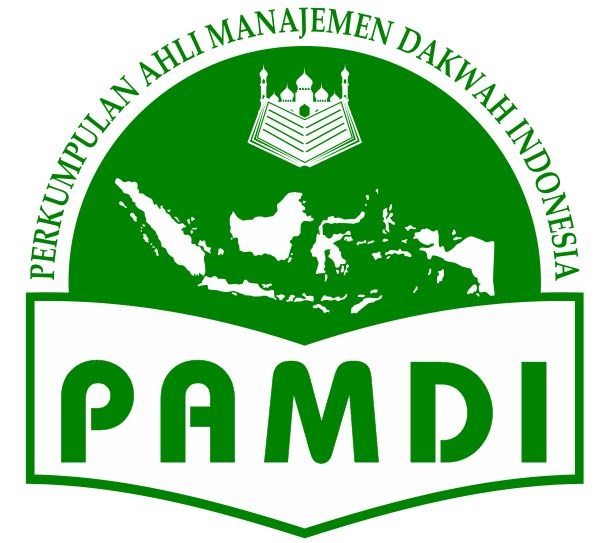Tradition, Social Solidarity, Religion and Culture
Tradisi berzanji dan Pengaruh terhadap masyarakat Desa Salakbrojo
DOI:
https://doi.org/10.56874/almanaj.v2i02.1022Keywords:
Tradition, Social Solidarity, Religion and CultureAbstract
Tradition, social solidarity, religion and culture The tradition of reading the book of Barzanji has actually been practiced for a long time in Muslim society. The existence of the tradition of zanji in society can increase solidarity so as to create good friendship and facilitate the broadcasting of Islam to the community. The tradition of reading the book of barzanji is an activity that is usually carried out once a week and every time there is a thanksgiving event. The purpose of this research is to examine and examine the barzanji tradition in increasing solidarity and its influence in the village of Salakbrojo. This study applies a qualitative approach with a descriptive method. The method of analyzing data is based on explanations from primary and secondary data. The results of the study prove the tradition of reading the book of Barzanji Salakbrojo which is based on the solidarity of the whole community. The existing solidarity is created in the form of togetherness regardless of social class and collaboration between communities in protecting the existence of the barzanji tradition to this day.Tradition, social solidarity, religion and culture The tradition of reading the book of Barzanji has actually been practiced for a long time in Muslim society. The existence of the tradition of zanji in society can increase solidarity so as to create good friendship and facilitate the broadcasting of Islam to the community. The tradition of reading the book of barzanji is an activity that is usually carried out once a week and every time there is a thanksgiving event. The purpose of this research is to examine and examine the barzanji tradition in increasing solidarity and its influence in the village of Salakbrojo. This study applies a qualitative approach with a descriptive method. The method of analyzing data is based on explanations from primary and secondary data. The results of the study prove the tradition of reading the book of Barzanji Salakbrojo which is based on the solidarity of the whole community. The existing solidarity is created in the form of togetherness regardless of social class and collaboration between communities in protecting the existence of the barzanji tradition to this day.
References
Dahlan, Abdul Aziz,, Majmu’ah Maulud Syaraf al-Anam, Indonesia: Safakarya,tt.
Dahlan, Abdul Aziz, Ensiklopedia Hukum Islamm, Jakarta: P.T Ichtiar Baru Van Hoeve.Abdul, 2001
Dewan Redaksi Ensiklopedi Islam, Ensiklopedi Islam Jilid I, Jakarta: Ichtiar Baru Van Hoevem, 1993.
Kementerian Pendidikan dan Kebidayaan, Kamus Besar Indonesia, ED. V, Cet. I. Jakarta: Balai Pustaka, 2016.
Maryam.(2018). Peran Majlis taklim Nurul Iman Dalam pembentuakan Keragaman Masyarakat rt 01/01 keluran pagar dewa kec selebar bengkulu Jurnal Penelitian dan Pengabdian Masyarakat.(3).2
Mohammad Fuad Kamaluddin al-Maliki, Amalan Barzanji Menurut Perspektif Islam, Johor Bahru: Penerbit Pusat Islam Iskandar Johor, 2009.
Muhammad Shalihin, Ritual dan Tradisi Islam Jawa, Yogyakarta: Narasi, 2010.
Munawwir,Ahmad Warson.(1990). Al-Munawwir: Kamus Arab-Indonesia. Jakarta: Grafiti Press
Nurdin, Abidn, Integrasi Agama dan Budaya: Kajian Tentang Tradisi Maulod Dalam Masyarakat Aceh, El Harakah, Vol. 18. No. 1 2016
Raharjo Jati, Wasisto Tradisi Sunnah dan Bid’ah, Analisa Barzanji Dalam Perspektif Cultural Studies, El-Harakah, Vol. 14. No 2, 2012
Rahma Syam, Amna, Tradisi Barzanji Dalam Perspektif Masyarakat Kabupaten Bone, Jurnal Diskursus Islam, vol. 4 No. 2. 2016
Rosalinda, Tradisi Baca Burdah dan Pengalaman Keagamaan Masyarakat Desa Setiris Muara Jambi, Kontekstualita, Vol. 28. No. 2013.
Samat, Abdul Basit, dkk, Seni Barzanji dan Marhaban: Sejarah dan Amalannya Dalam Masyarakat Melayu, ‘Ulum Islamiyyah Journal, USIM, Vol. 14, 2014.
Sugiyono.(2010).Metode Penelitian Kuantitatif Kualitatif dan R&D. Bandung:CV Alfabeta
Downloads
Published
Issue
Section
License
- All articles published in Al Manaj: Jurnal Manajemen Dakwah are licensed under a Creative Commons Attribution-ShareAlike 4.0 International (CC BY-SA) license. This means anyone is free to copy, transform, or redistribute articles for any lawful purpose in any medium, provided they give appropriate attribution to the original author(s) and Al Manaj: Jurnal Manajemen Dakwah, link to the license, indicate if changes were made, and redistribute any derivative work under the same license.
- Copyright on articles is retained by the respective author(s), without restrictions. A non-exclusive license is granted to Al Manaj: Jurnal Manajemen Dakwah to publish the article and identify itself as its original publisher, along with the commercial right to include the article in a hardcopy issue for sale to libraries and individuals.
- Although the conditions of the Creative Commons Attribution-ShareAlike 4.0 International (CC BY-SA) license do not apply to authors (as the copyright holder of your article, you have no restrictions on your rights), by submitting to Al Manaj: Jurnal Manajemen Dakwah, authors recognize the rights of readers and must grant any third party the right to use their articles to the extent provided by the license.

This work is licensed under a Creative Commons Attribution-ShareAlike 4.0 International License.


.jpg)










